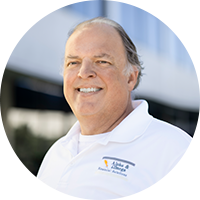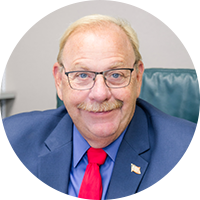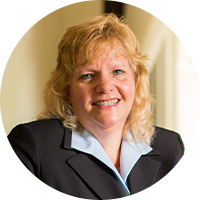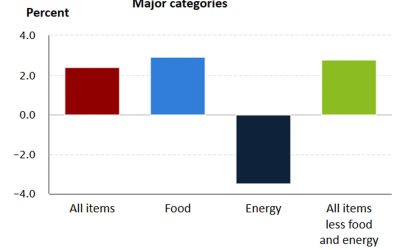Faith and finance: Guiding values-based investments
Faith and finance: Guiding values-based investments

Advisors explain how they are meeting the growing client desire for faith-based financial and investment planning—aligning core values with investment strategies.
Faith-based investing has seen significant growth in recent years, driven by investors seeking to align their financial decisions with their religious and ethical values. This approach often involves screening out companies involved in activities deemed inconsistent with specific faith principles, such as gambling, alcohol, tobacco, pornography, abortion, certain arms and drug manufacturing, and other factors. This trend reflects a broader movement toward values-based investing, where financial stewardship is guided by moral and ethical considerations.
Business Insider recently noted the surge in faith-based investing:
“Faith-based investments are a relatively small part of the ETF world, but investors—typically of Christian or Catholic faith—piled into these vehicles in the last year, many of which promise to keep money out of anything with links to things like abortion, tobacco, or gambling.
“The value of faith-based investments swelled to at least $130 billion last year, but the total size of the market is likely larger than that, according to a study from the faith-based investment advisory Brightlight.
“According to Brightlight’s survey, assets managed by faith-based funds hit $100 billion for the first time last year, a 14% jump in the 15 months leading up to June 2024.”
AUM IN FAITH-BASED MUTUAL FUNDS AND ETS ($M)
Sources: Business Insider, Brightlight
How investors can navigate the faith-based investment landscape
Faith-based investing often faces several perceptual issues that can present initial obstacles for financial advisors and their investor clients. One challenge is the inherently more limited investment options available that align with specific faith-based principles. This may affect portfolio diversification and potentially limit access to some higher-performing stocks and industry subsectors.
Additionally, there is a perception of lower returns associated with faith-based investments, as some investors believe that prioritizing ethical considerations might compromise profitability. However, studies have shown that companies with strong ethical practices often outperform in the long term due to lower risks and better reputations.
Another hurdle, especially for self-directed faith-based investors, lies in the challenge of implementing the screening processes required to ensure investments align with religious values.
However, one advisory firm notes,
The firm offers the following guidance for new faith-based investors:
- “Educate Yourself: Take time to understand the principles of faith-based investing and explore available resources. Many organizations and advisors specialize in guiding faith-driven investors.
- “Partner with an Expert: Working with a financial advisor experienced in faith-based strategies can help streamline the process, ensuring your investments align with your values without sacrificing performance.
- “Stay Focused on the Long Term: Remember that faith-based investing is about creating lasting impact while honoring God’s provision. Patience and a clear vision are key to overcoming challenges.”
One investment manager takes faith-based investing a significant step further, offering an actively managed approach tailored to this investor segment and aligned with a range of risk profiles and portfolio objectives. The strategy combines asset-class diversification with a disciplined process focused on owning top-performing qualifying stocks and avoiding underperformers. It is available in five suitability-based profiles, each with preset allocations to equity, income, gold, and money market funds based on an investor’s risk tolerance and time horizon. For advisors interested in this space, the firm also shares “10 ways to build your faith-based clientele”—a set of practical ideas for better serving values-driven investors.
How do advisors articulate their approach to faith-based planning and investing for clients?
 Kevin Gotts • Alpha & Omega Financial Solutions • Whittier, CA
Kevin Gotts • Alpha & Omega Financial Solutions • Whittier, CA
Read full article
“I became a financial advisor mainly for the opportunity to help people improve their financial situation. For me, this work is an extension of my family’s ministry. That does not mean every client has to have faith-based values, but it does mean I approach every client relationship with respect, humility, and a genuine interest in their lives. I’ve been in practice since 1990 and, to me, it’s the greatest job in the world.
“We educate clients to view money as simply a means to help them finance their values and aspirations. A core belief we share is, ‘We are made for more.’ We believe people should strive to live their best lives. We see three supporting concepts for that philosophy: (1) People should have the ability to demonstrate generosity in their daily lives. (2) Their ultimate financial goal should be to live comfortably without needing to earn income at a job—what most people define as retirement. (3) They should be in a position to care for and interact meaningfully in the lives of their family—whether a spouse, children, grandchildren, or parents. …
“… For many of our clients, the faith-based aspect of financial and investment planning is important. For those clients, we want to make sure their planning objectives and investments align with their spiritual values.
“Finally, we strive to take financial planning to a higher level with what we call life planning. The focus is more on understanding who the client is and who they want to be than it is on money. The role of money is intertwined with the concepts of lifestyle, creativity, family, service, values, and other aspects of personal satisfaction. Life planning is a comprehensive process that looks at the big picture of a client’s life.”
 James Kraatz • Faith Investment Services LLC • Shelby Township, MI
James Kraatz • Faith Investment Services LLC • Shelby Township, MI
Read full article
“After more than 11 great years working with Aid Association for Lutherans, I wanted to increase my focus on faith-based financial services. Our goal was to create a firm culture offering clients a full range of financial-planning and wealth-management services, including retirement-income planning and risk management, with a specialized capability in faith-based investments.
“Our mission is to provide education, guidance, and customized strategies that can help our clients fulfill their faith-based purpose in life. We assist families, businesses, churches, and ministries in better utilizing the financial resources they have been blessed with. Through faith-based financial strategies and morally directed investing, we believe clients can feel confident about their financial future, prioritizing how that future reflects their unique values. …
“The cornerstone of our investment philosophy is aligning investment strategies and selections with our clients’ personal beliefs and values. … We use a sophisticated tool that screens investments based on criteria related to faith and moral beliefs that can be customized for each client. Using Morningstar data, the tool can screen both individual company stocks and companies that are part of over 18,000 mutual funds and other investment products.
“Importantly, we also work with third-party managers that can apply this same screening methodology in faith-focused strategies. These strategies use multiple risk-management tools, going beyond basic asset-class diversification to manage market risk and seek competitive risk-adjusted returns. These strategies can address a wide range of suitability and risk profiles appropriate for our clients.”
 Cathy Jackson • Beacon Financial Group LLC • East Fallowfield, PA
Cathy Jackson • Beacon Financial Group LLC • East Fallowfield, PA
Read full article
“My faith is an integral part of my life, my family, and how I relate to people in all ways. It is only natural that this perspective carries through to my advisory practice. I am a Certified Kingdom Advisor, which means I have been trained in delivering financial advice from a biblical worldview and helping people responsibly steward their financial resources. I have also established a nonprofit organization, Beacon of Knowledge Ministry, which is committed to financial education for individuals who are seeking a faith-based perspective on managing their finances.
“To me, this is all about family values and helping clients put their faith into action. When I am getting to know a client, it goes well beyond money. It’s about understanding where their values lie and what inspires the decisions they make. …
“While a prospective client may be a person of great faith, they do not always realize how financial stewardship and biblical principles can work together. There are more than 2,300 biblical verses that address either money or possessions, and a great deal of wisdom and inspiration can be found in the Bible. I believe my training in this area has elevated my practice to a higher level of understanding of Christian financial stewardship.”
 Timothy Lay • TPA Financial • Sisters, OR
Timothy Lay • TPA Financial • Sisters, OR
Read interview
Read full quoted article
“I have two ‘titles’—investment advisor representative and trusted partner advisor—but informally I like to think of myself as a ‘servant leader.’ That simply means using my skills, experience, and knowledge to educate, influence, and guide people during the process of improving their personal and financial futures. It means actively showing clients patience, respect, confidence, and transparency.
“I have the ability to offer clients both ESG and faith-based investment solutions that provide the opportunity to serve clients’ investment objectives while meeting their social or spiritual values. We can incorporate impact investing into active portfolio management by using active managers who are skilled at conducting the appropriate research and who may offer several different investment options that incorporate ESG or faith-based parameters.
“You can also have a portion of the portfolio actively managed and a portion in more of the traditional investment models. Each strategy and each client may have different goals and objectives, and you can achieve those utilizing any number of methods. …
“The impact investing space is growing in awareness, and there are several good platforms that offer ESG and faith-based investments. If you don’t currently offer ESG or faith-based options, my question would be why not? We have a duty to know what is out there and to be able to address the needs of our clients and future clients.”
The opinions expressed in this article are those of the author and the sources cited and do not necessarily represent the views of Proactive Advisor Magazine. This material is presented for educational purposes only.
 David Wismer is editor of Proactive Advisor Magazine. Mr. Wismer has deep experience in the communications field and content/editorial development. He has worked across many financial-services categories, including asset management, banking, insurance, financial media, exchange-traded products, and wealth management.
David Wismer is editor of Proactive Advisor Magazine. Mr. Wismer has deep experience in the communications field and content/editorial development. He has worked across many financial-services categories, including asset management, banking, insurance, financial media, exchange-traded products, and wealth management.
RECENT POSTS









